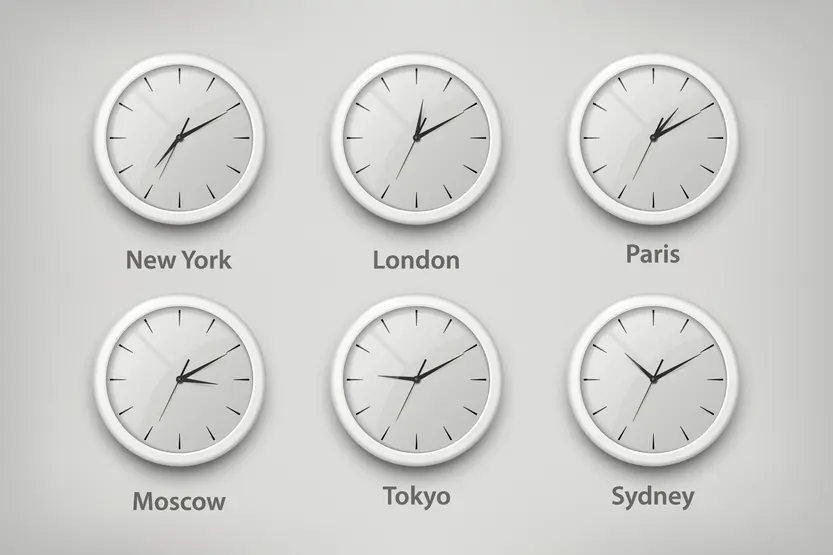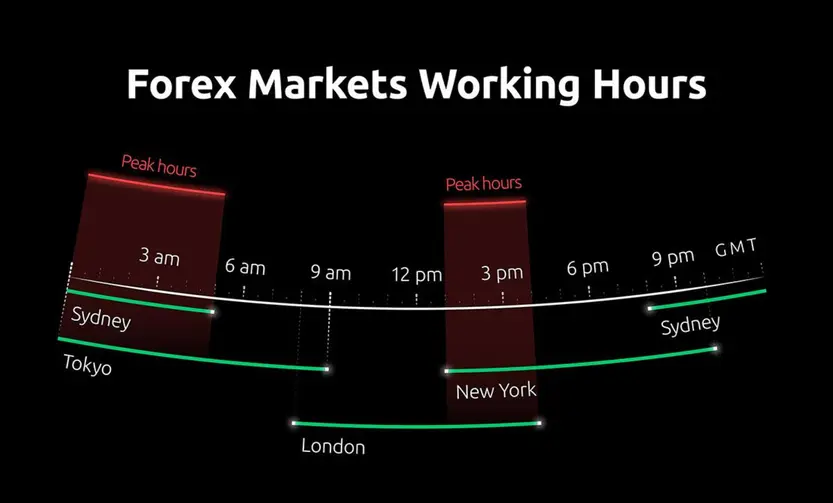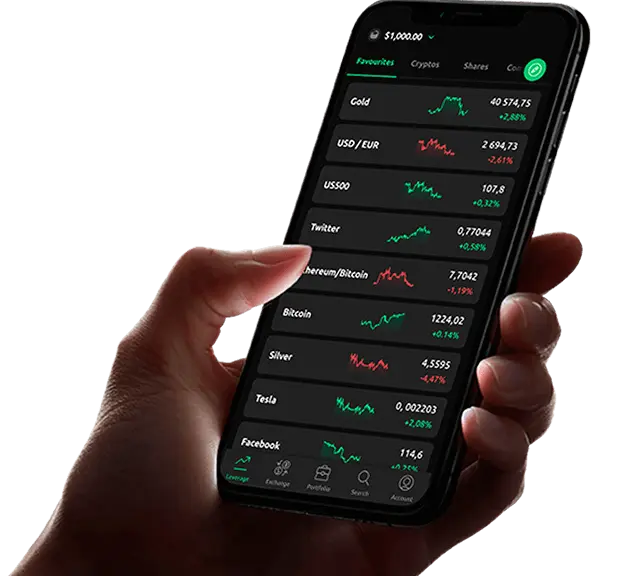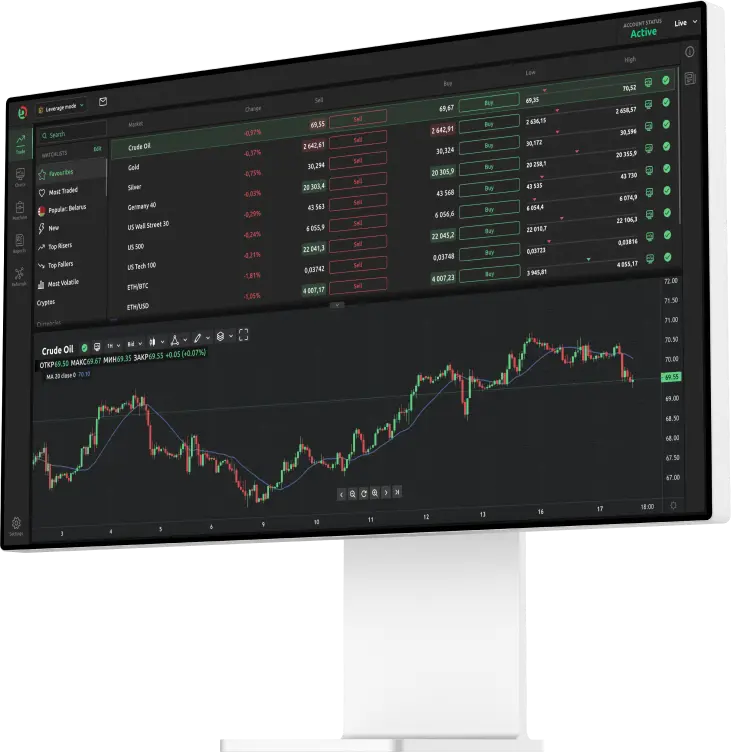Global financial markets are a hive of activity, but they are not all 24/7 operations

Contents
From sunny Sydney to leafy London, the world’s financial centres are busy places. But given their vastly different time zones, when exactly are the markets open for trading stocks, cryptocurrencies and foreign exchange?
To cut a long story short, this depends on the type of asset being traded. Generally speaking, wherever on the planet you may find yourself on a weekday, the odds are that trading is underway somewhere. That said, some times of day are busier than others, for reasons that will become apparent in our guide.
So, buckle yourselves in for a whistle-stop tour of the global markets, complete with a cut-out-and-keep guide to timings.
Stock markets trading hours
Before we jump into the schedule, here are a few fast rules to bear in mind:
- Trading hours, and the duration of each session, vary from city to city.
- Some stock exchanges in Asia take lunch breaks, but those in the rest of the world do not.
- Markets often close on public holidays. As an example, the New York Stock Exchange will shut its doors on 4 July, which is Independence Day in the US.
- Middle Eastern stock exchanges also have different business days because their weekends fall on Fridays and Saturdays.
However, it is important to note here that on 8 December 2021, Dubai Financial Markets announced new trading hours from Monday to Friday will come into effect on 3 January 2022. It will have a five-hour trading session between 10:00 (06:00 GMT) and 15:00 (14:00 GMT) local time, according to a tweet by the Dubai Media Office. - Daylight savings time can put some countries an hour ahead (or an hour behind) for six months of the year.
Now, without further ado, let us look at when the world’s major stock exchanges are open.

As you can see, these exchanges provide continuous trading opportunities around the clock (we have not even covered smaller markets such as New Zealand, which opens at 22:00 GMT).
Stock exchanges have strict trading hours because they want to ensure that liquidity is highest between their opening and closing bells. Generally, the markets are busiest at the start of the trading hours, as investors react to news from other parts of the world and digest financial results.
Forex trading hours
Forex markets are a different beast because they operate 24 hours a day for most of the week (from 12:00 GMT on Sunday to 11:00 GMT on Friday.) This is possible because currencies are not traded through one particular exchange.
However, do not let this fact trick you into thinking that there is movement all the time. The world’s financial centres still run their own trading hours for a set time period on weekdays, which looks like this:

Forex markets are busiest when two markets are open at the same time, and if you look closely, you will notice they all overlap. Sydney and Tokyo’s sessions share a five-hour window, and New York and London share three hours. This boosts volumes and makes it easier to execute trades.
Crypto markets trading hours
Crypto markets are fully 24 hours a day, seven days a week, but levels of liquidity can vary depending on the time of day. This means there is a slight difference for traders who are trying to assess market movements. Whereas stock traders would compare the current share price with its position at the close of trading the day before, crypto traders would look at the price exactly 24 hours ago instead.
The 24/7 nature of crypto trading hours also changes the way we analyse daily figures. If we have a start and close price, that does not mean the market actually started or closed at this figure. All it shows us is that a coin was worth one price at 00:00 hours and another at 23:59 hours, because, in effect, those are the cryptocurrency trading hours. There is no real close and no real open.
If a currency is in the markets, it is being traded and its price is, for want of a better word, official. Also, since the cryptocurrency market operates at weekends, any price chart will look smoother. There will be sudden falls and rises, but they will happen organically through trading – they will not be dips and boosts generated by the markets closing and out-of-hours trading taking place.
Basically, the answer to the question “What time does the crypto market open and close?” is “It doesn‘t”. The crypto markets are always open.
That said, though, is there still a best time to trade crypto? Charles Edwards, the founder of Capriole Investments, did some research and found that there was a higher return for trades made on Sunday night into Monday morning.
This may be because there are fewer active traders on weekends, meaning there is more chance of the price going up suddenly when more people start trading again on Monday morning.
FAQs
It has been suggested that the best time to trade stocks and shares is from 09:30 to 10:30 EST (or 13.30 to 14.30 GMT). This is the time when you will see the most volatility, particularly in American markets, so there is the most potential to make money at this point.
However, you should do your own research, remember prices can go down as well as up and never invest more money than you can afford to lose.
Yes, you can trade forex, stocks, and crypto on the weekend. Stocks can be traded via Electronic Communications Networks, forex can be traded through central banks, and the crypto markets never close.
Yes, you can, thanks to Electronic Communications Networks.
No it does not. You can trade cryptocurrency at any time you want to because the crypto market is open 24/7.


